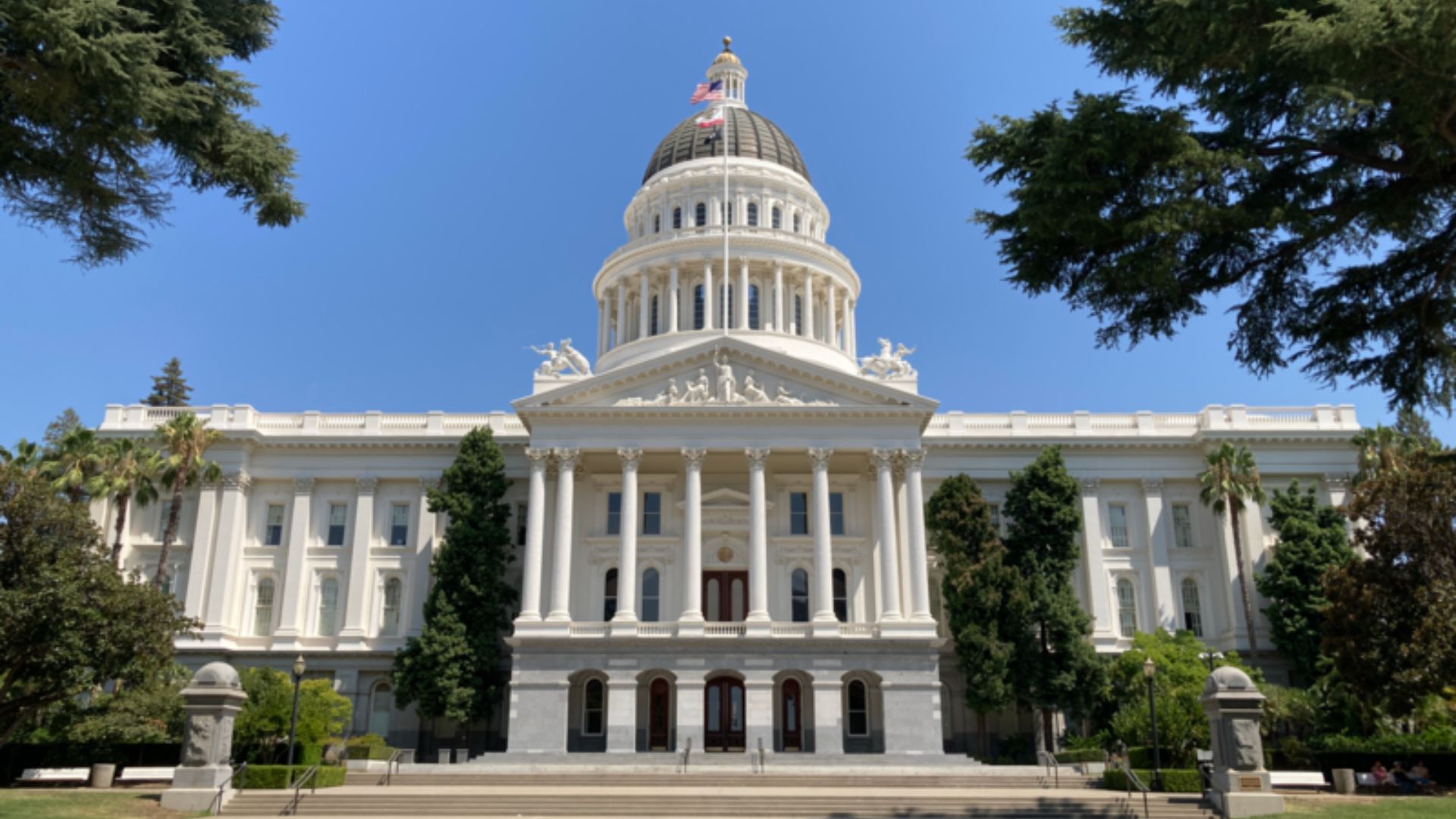California has recorded a worrying trend; in the past three years, more than 750,000 people have left the state, most of whom are top earners.
The trend of affluent individuals leaving the Golden State has increased recently, and many experts point to numerous factors for the mass exodus.
The Wealthy Flee California

California has been leading the nation in out-migration for several years due to various reasons. Because of these issues, fewer people are filing tax returns, which means that the state has less money to help pay off its increasing deficit.
With a 25% drop in total income tax collections, California is facing a massive issue that it is trying to figure out how to stop. But why are the wealthy fleeing California?
California’s Decline Isn’t Suprising

California “has now gotten to the point where they’re seeing an actual decline, which is extremely rare, but has long seen a net out migration,” Tax Foundation Vice President of State Projects Jared Walczak told FOX Business.
“It’s not a coincidence that California poses some of the country’s highest taxes at a time of much greater tax competitiveness when 29 states have cut individual or corporate income taxes in the past three years. California is only one of a handful to have actually raised taxes.”
Climbing Tax Rate in the State
The high tax rates contribute to well-educated and high-earning individuals leaving California. The state takes around 14.4% and is expected to rise in coming years.
Comparable states like Hawaii and New York tax their residents at 11% and 10.5%, respectively. In recent years, many tech workers based in Silicon Valley have made their way to Austin to enjoy low tax rates and wide open spaces. However, the influx of Californians caused the real estate market to become over-inflated and increasingly expensive for average individuals.
Ultra Wealthy Contribute the Most to Income Tax

The trend concerns state officials as the state’s top 1% contribute around 40-50% of the state’s income tax.
As these wealthy individuals leave, taxes collected by the state and used for social services will begin to decline. The state is already facing heavy spending deficits and can’t afford to lose any income.
California’s Deficit Reaches $68 Billion

California is dealing with a $68 billion deficit, which grew over the last year as Gov. Gavin Newsom and his administration failed to properly budget the government’s spending.
This failure came after the government extended tax filing deadlines for businesses and individuals, which meant the government had to budget without knowing how much money the state had to spend.
Many Large Businesses are Leaving

Tesla, Oracle, and Microsoft have all moved to transition their headquarters from the Golden State to Texas.
Most of these large companies have invested heavily in real estate and new offices to begin enjoying the state’s zero percent corporate tax rate. Heightened costs for labor, utilities, and insurance have also affected the bottom line for many businesses.
Top Earners Fleeing the State

For the state’s biggest earners, a 14.4 percent tax rate can eat into their disposable income and become a strenuous financial burden.
According to the IRS, from 2020 to 2021, the average income for those relocating from California was around $137,000. Earners with the most to lose have felt the need to find greener pastures.
California Adds Another Tax

In a stroke of irony and desperation, California introduced Assembly Bill 259, known as the California Wealth and Exit Tax. The bill is set to tax companies and individuals attempting to leave the state.
The incentives—which would give the people and businesses state tax breaks, business benefits, infrastructure support, and more—aim to keep these high taxpayers in the state.
Who Would Be Affected by the Wealth Tax

Sure, the wealthy would be taxed, or those full-time residents of California would hold wealth over $50 million. It would tax 1% of wealth up to $1 billion and 1.5% of wealth over $1 billion at the time of their exit.
Part-time businesses or temporary residents would get taxes at a lower rate. However, this one-time tax is based on worldwide net income and would apply to full-time, part-time, or temporary residents if those individuals or businesses meet the wealth thresholds.
Ruthless Real Estate Market

Another top reason for those earning a healthy income to leave the state is their inability to own a home despite being paid well above the national average.
Home prices have skyrocketed in California, with the average detached single-family home costing around $800,000. However, this price increases in more desirable areas of the state, such as San Francisco, San Diego, and Los Angeles.
Massive Shift in Demographics

Although the population has grown in California for the first time since the COVID-19 pandemic ravaged the state, the demographics are shifting drastically.
Wealthy individuals who could afford a better quality of life are moving out. Renters and people in desperate need of quick work, such as those in factories and service industries, are moving in.
Real Estate Bubble Bursting

Despite the outrageous cost of homes in busy areas like San Francisco, many paid over-inflated prices just a few years ago and are now facing massive losses.
In the Bay Area, many homes purchased during the real estate boom in 2021 have sold for a loss of more than 20%. The median loss is $156,000 for the average home sold in 2024.
Los Angeles Mansion Tax Hinders the Real Estate Market

The relentless price cuts around the state’s luxury real estate market could be a result of the controversial Los Angeles mansion tax. The tax imposes a 4% levy on property sales above $5 million and a 5.5% charge on sales over $10 million.
The funds from the mansion sales fund earmarked for affordable housing and homelessness programs.
The Death of Mansion Living

Since the tax went into effect on April 1, 2023, the luxury real estate market in LA has come to a halt. Sellers yanked properties off the market rather than pay thousands in extra taxes.
Those who are eager to sell their mansions are taking major losses as no one seems interested in buying these homes that could cost them more in taxes than they are worth.
High Cost of Living

In addition to the staggering housing costs, the average cost of living in the state sits at 38% higher than the national average.
The elevated expensive have rapidly driven people out of the state.
Living Paycheck to Paycheck

Gas, food, parking, and insurance account for some of the most significant bills many face each month.
The gap widens considerably in more expensive places like LA and SF, where high-wage earners can feel like they’re still living paycheck to paycheck.
Pandemic Fall Out for Businesses

Tourism and foot traffic have yet to return to pre-pandemic levels for many business owners. Many restauranteurs have floundered in recent years; the increase in minimum wage and low sales have forced many people to close brick-and-mortar locations.
Small businesses on the Fisherman Wharf in San Francisco have reported immense losses, and many will never recover.
The Cost of Living in California

According to Forbes Magazine, California has the nation’s third-highest living costs of living behind Hawaii and Massachusetts. The average household spending averages about $53,171 for housing, health care, taxes, food, and transportation.
The state’s high cost of living can explain why it has one of the nation’s highest levels of poverty in the Census Bureau’s supplemental calculator.
Expensive Legislative Measures

In recent years, the state has been plagued by new controversial bills. From expensive gas increases to quell greenhouse gas emissions to water pump fees for farmers, many residents have criticized the government’s out-of-control hand.
These new legislations have been eating away at the wallets of residents who feel that gas, property, and income tax hikes have become unsustainable.
Natural Disasters Spread Through the State

Natural disasters in California have also become more frequent, making it much harder for the wealthy to create sustainable practices that help them make money rather than spending it to keep everything operating.
While atmospheric rivers flood California, creating landslides that destroy the land businesses and houses sit on, droughts keep the state dry throughout the summer.
No Way to Protect Against the Disasters

These natural disasters may not have been a problem for the wealthy if there was a way to protect themselves. With fires and floods becoming increasingly regular in the state, insurance companies are also leaving the state.
Fire and flood insurance is either far too expensive or no longer offered to those who live in areas of the state that are considered to be at high risk.
Strategic Moves for Better Life Quality

Many wealthy residents who work remote jobs or own businesses have discovered that relocating to less expensive states can improve life satisfaction.
Besides increased income, many experience better public school systems, larger homes, and better healthcare after leaving California.
Where Are the Wealthy Moving To?

Many wealthy individuals and businesses are moving to states that have lower taxes and a more relaxing pace that doesn’t require people to sit in hours of traffic.
Texas, Florida, and South Carolina have seen a spike in population as most people from California move to these inexpensive places that give them similar opportunities that were once only available in California.
